Covid Emergency
Government schools in Tamil Nadu were all been closed indefinitely during the pandemic. An obvious disruption of education, this also caused a serious and frightening spike in the serious assault of children. In response our Indian partner organisation developed an outreach programme of basic counselling and sexual education, helping children understand their rights and how to help keep themselves safe. This was supplemented by leaflets distributed to children in the region.

Every Saturday the teachers developed worksheets for the week ahead and distributed these to the ten local Education Centres. Children who usually attended the evening classes now attended on Monday mornings in socially-distanced groups of five to collect notebooks and ask questions, returning the completed worksheets on Friday evening for marking.
At all collection points our Indian partner distributed masks, sanitizers, soaps and snacks for the children. They also taught the children how to wash their hands properly and provided basic supplies like good quality rice and clean water.
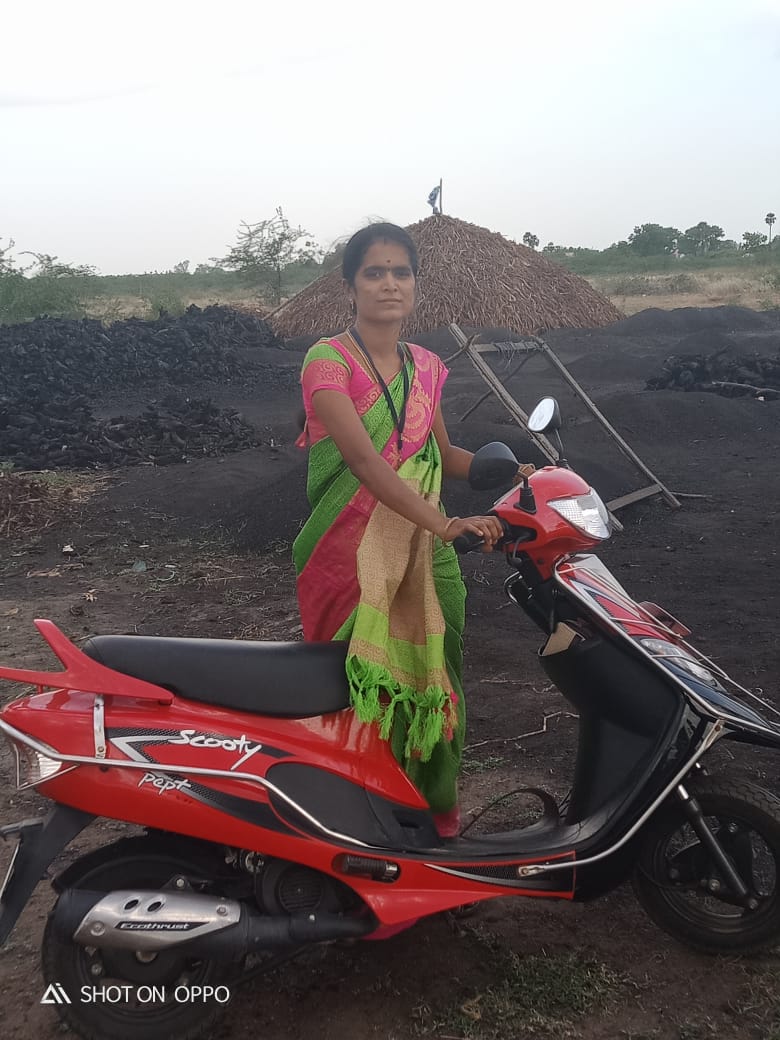
Transport
Getting around in the rural villages which we serve is no easy matter. In the summer of 2020 we sent over £9,000 to purchase and maintain for several years motorbikes which now enable the staff to travel safely across the region. Also it’s been necessary to purchase and maintain a small bus to bring trainees from outlying area to the Training Centre. All vehicles need to be robust to manage the hard wear they inevitably receive.
Climate Emergency
Extreme weather conditions bring dangerous winds and heavy flooding damaging the village houses and huts and also the team’s own outlying offices. Emergency help to rebuild is often provided by the team.
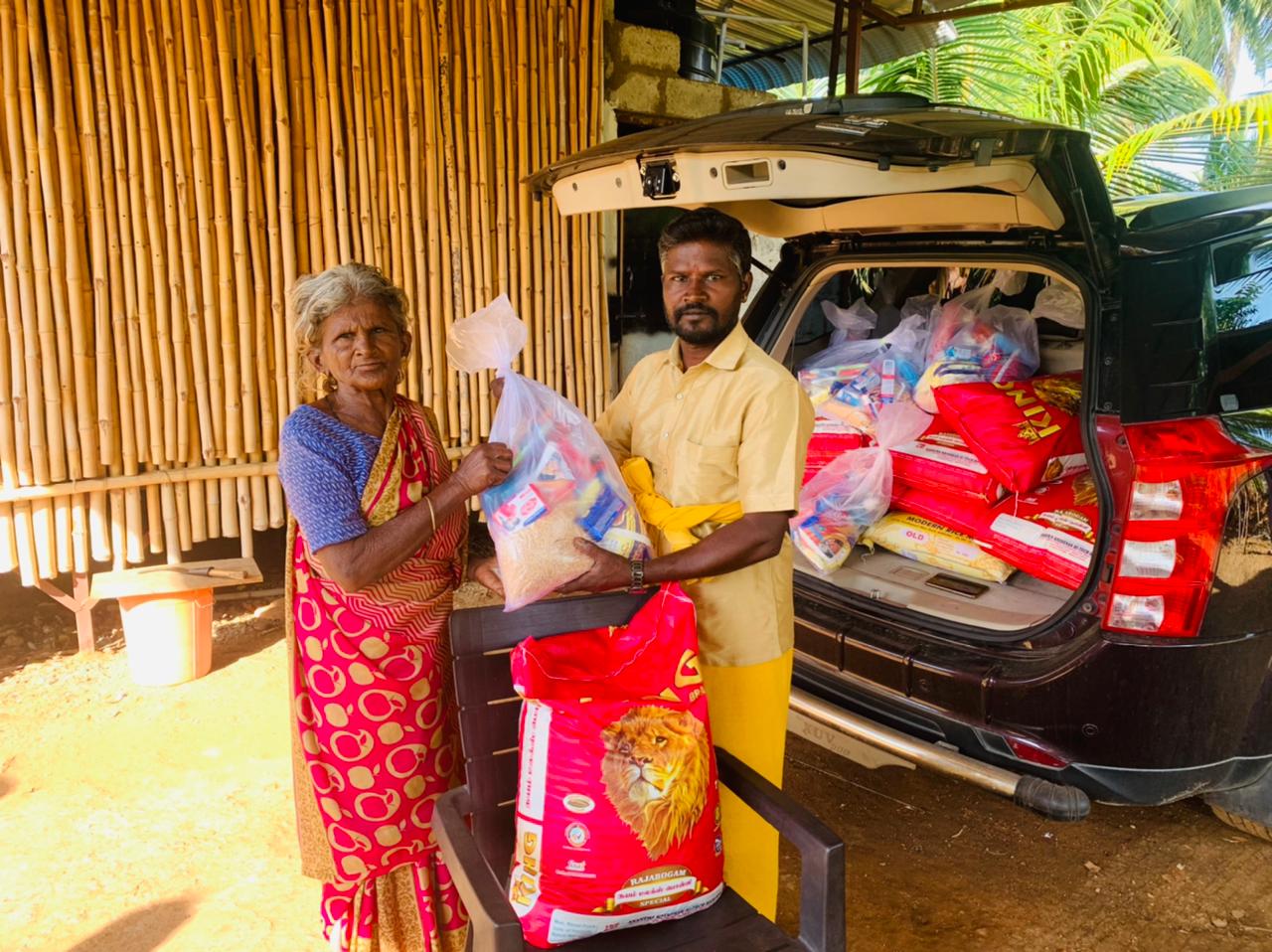
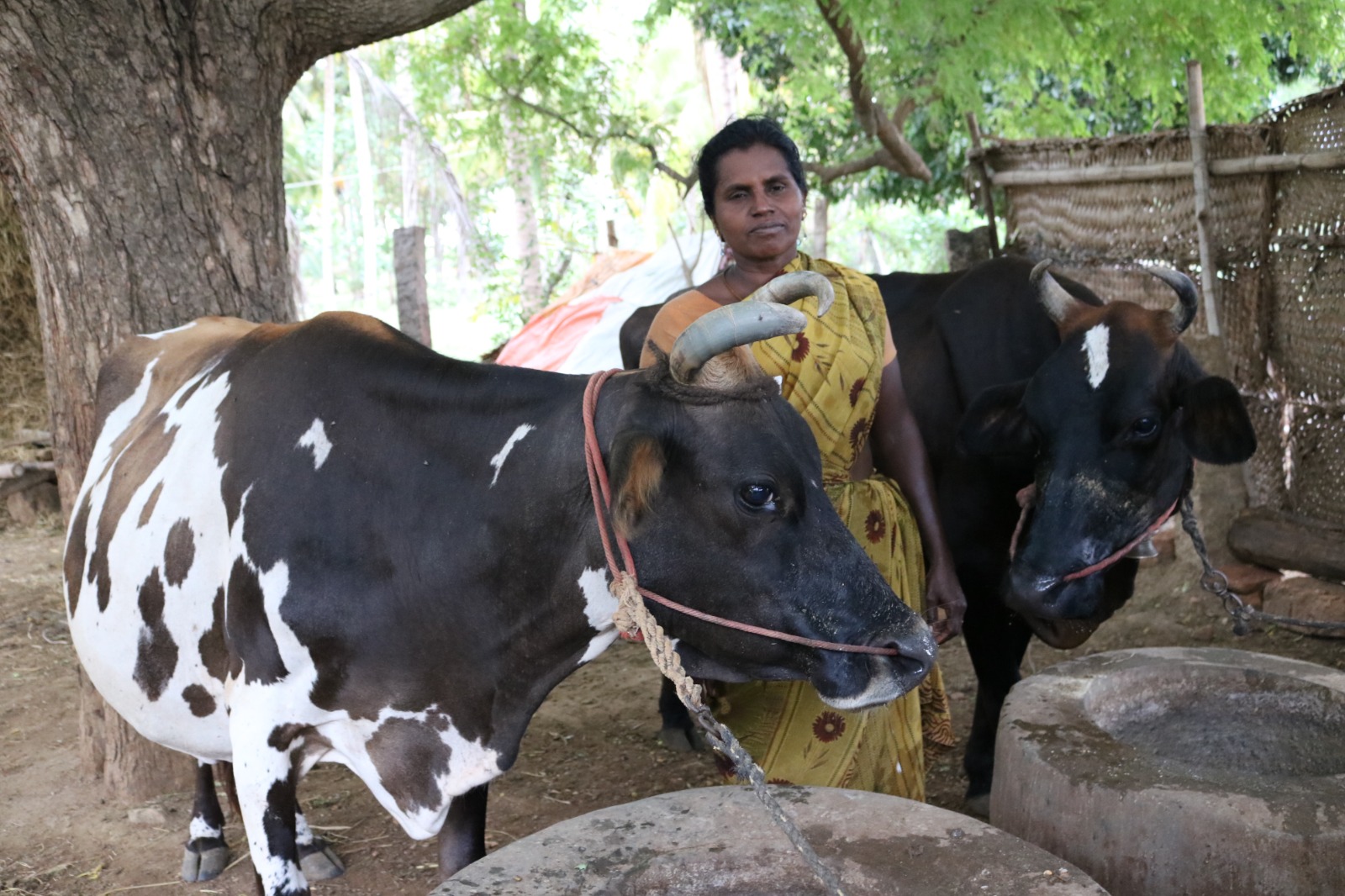
Animal Husbandry
Tamil Nadu specialises in growing crops and raising livestock. We have therefore purchased cows for women who do not wish to be trained in our other programmes. This is particularly suited to older women, often widows, who do not want to be re-trained. In our rural villages widows are some of the most ostracised members of society, subject to wide-ranging abuse from families and blamed for their husbands’ deaths.
We always provide two animals together in order to provide milk throughout the year, and make sure the animals are insured. This way an income for the woman and her family is secured and when possible they are then able to pay back the costs to the team so that other women in turn can be helped. This project provides a route to financial security and the reclaiming of their dignity.
Land on the Coconut Plantation also allows the team to raise goats for milk and sale. This creates employment for our villagers and an additional funding stream for the other projects.
Helping with Debt
Our Dalit (untouchable) recipients all too often find themselves having to take out from loan sharks to make ends meet until they can earn from the training we give them. Our Indian financial team therefore help them by offering interest-free grants which they repay as they can. Most of the beneficiaries are handloom weavers, coir makers, small farmers, constriction workers, and sweepers. . This project transforms desperation into hope.
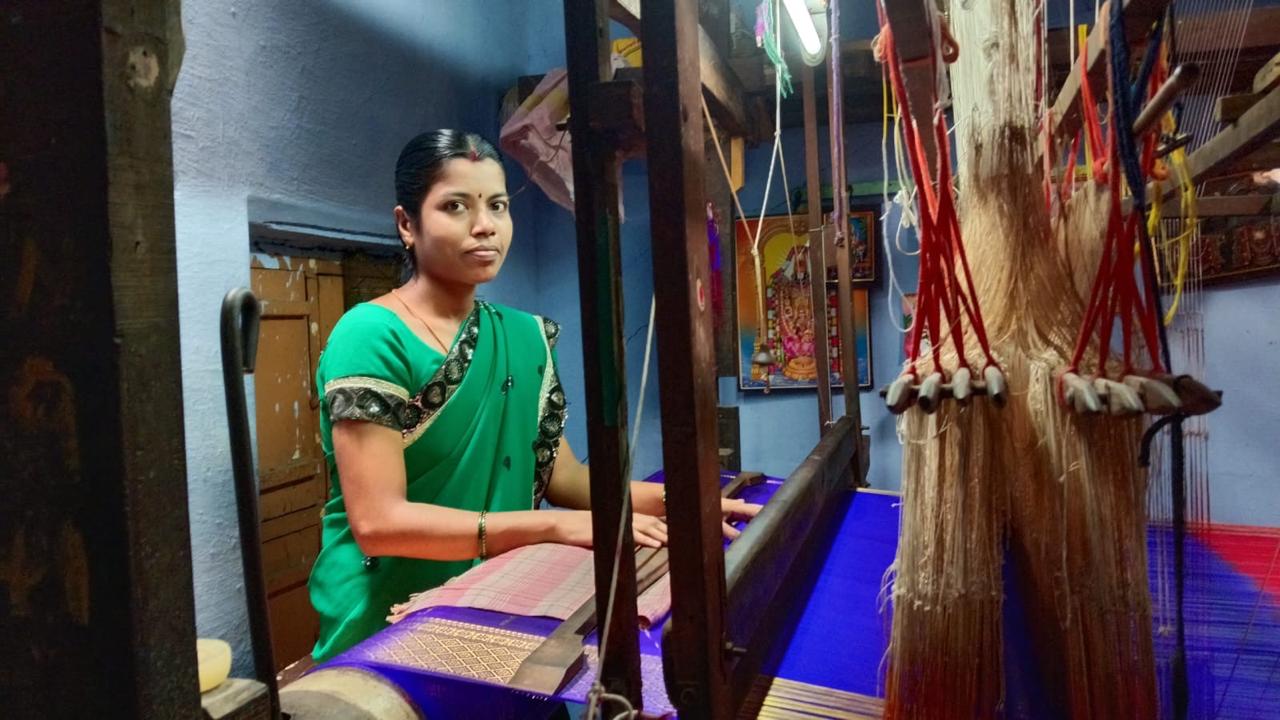
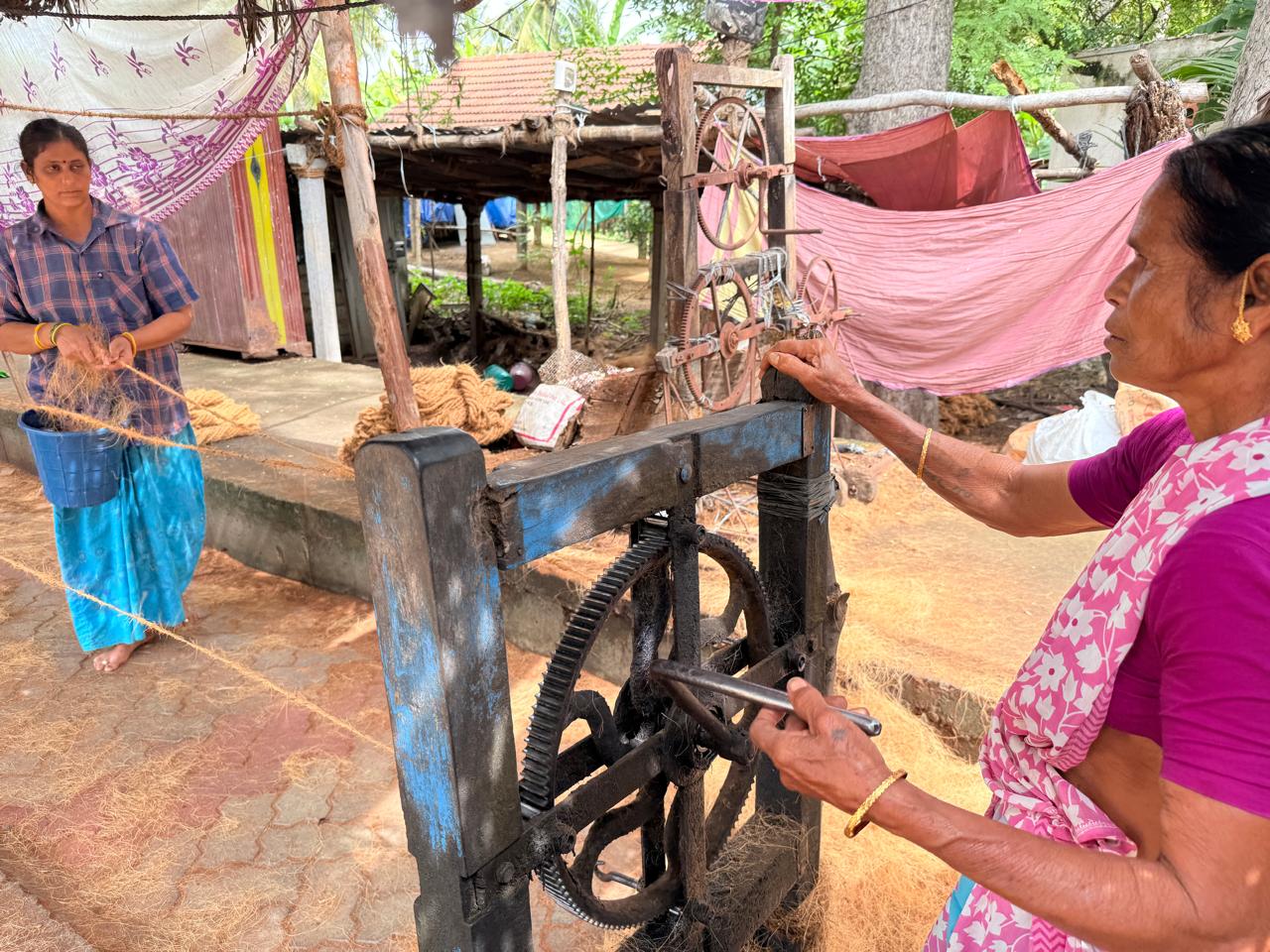
Other skills
The Coir-making Project turns the coconut fibre taken from each nut and turns it into sturdy rope. But to do this requires community effort and the provision of simple hand turning machines. We help by making sure the women have these provided and offer the coir from the plantation. Annakili, a 41-year-old mother from a marginalized background and mother of seven children had no stable income and little support, so daily survival was a challenge. The Coir Making Project equipped her with the skills, tools, and a platform to earn a steady income to care for her children and ensure that they don’t face the same struggles she endured.
Taking the palm leaves and weaving them can also provide income for a family. The resulting mats are to be seen all around the communities, used for fencing, hut-building, floor covering and much more.
